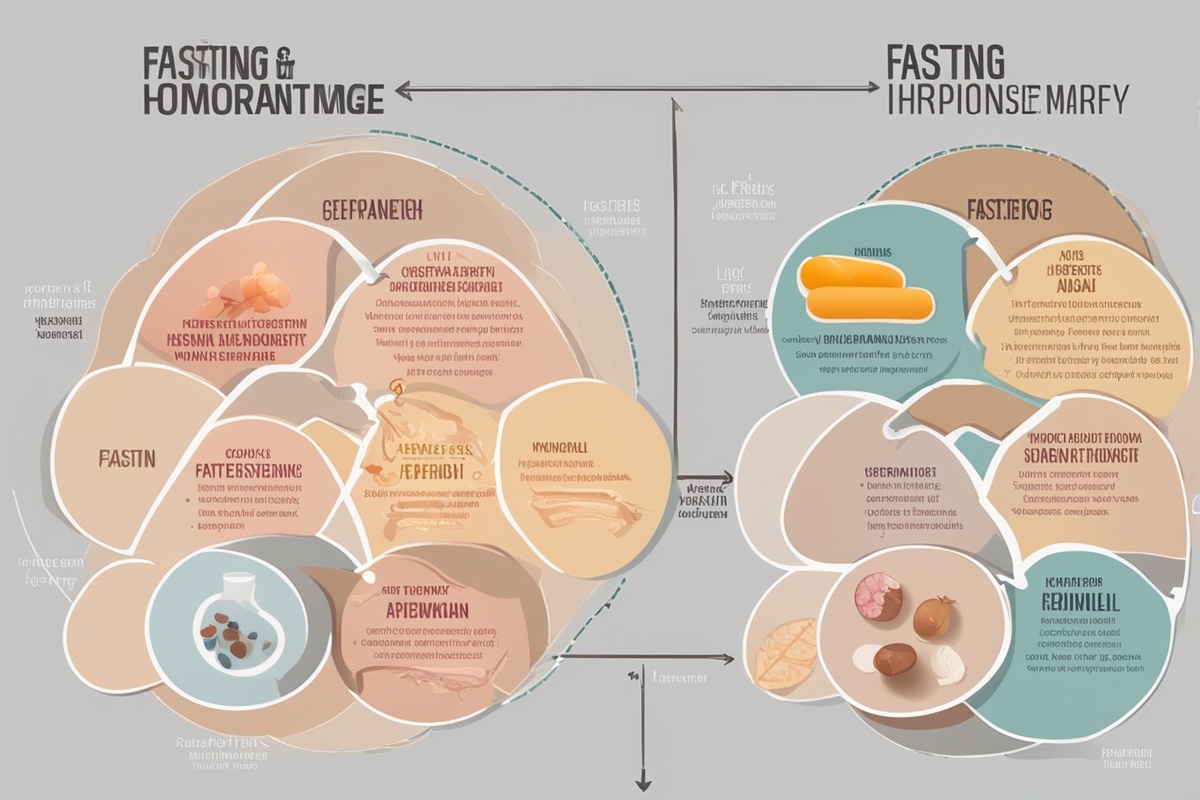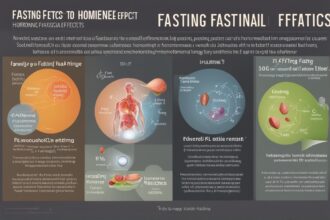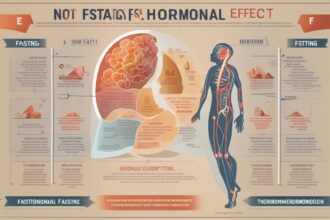Have you ever wondered how fasting impacts your body on a deeper, hormonal level? When you skip meals or commit to intermittent fasting, your body undergoes a fascinating transformation driven by fasting hormones. These chemical messengers play a pivotal role in regulating metabolism, energy levels, and even mood. Whether you’re a seasoned faster or just curious about how fasting can benefit your health, understanding the hormonal effects is key to optimizing your journey. In this post, we’ll dive into the science behind fasting and hormones, explore how they influence your body, and share practical tips to make the most of your fasting experience.
What Are Fasting Hormones and Why Do They Matter?
When you fast, your body shifts gears, relying on stored energy and triggering specific hormones to maintain balance. Fasting hormones are the body’s way of adapting to periods without food, ensuring survival by regulating blood sugar, fat burning, and energy distribution. Key players include insulin, glucagon, cortisol, and growth hormone, each with a unique role in how your body responds to fasting. Understanding these hormones isn’t just nerdy science—it’s a roadmap to better health. By knowing how they work, you can tailor your fasting routine to support hormonal balance and avoid pitfalls like fatigue or cravings.
Insulin: The Master Regulator During Fasting
Insulin is often called the “storage hormone” because it helps shuttle glucose into cells for energy or storage as fat. When you’re not eating, insulin levels drop significantly, which is a hallmark of fasting. This reduction signals your body to tap into stored fat for fuel—a process central to weight loss during intermittent fasting. Low insulin also enhances insulin sensitivity over time, which can help prevent type 2 diabetes. However, if you’re new to fasting, the initial drop in insulin might leave you feeling hungry or irritable. The good news? Your body adapts with consistency, making fasting easier as your hormonal balance adjusts.
Cortisol and Stress: A Double-Edged Sword in Fasting
Cortisol, the body’s primary stress hormone, spikes during fasting as part of the “fight or flight” response to perceived energy scarcity. This rise helps mobilize energy by breaking down fat and protein, but it can also increase stress if not managed. Elevated cortisol over long periods might disrupt sleep or cause anxiety, counteracting the benefits of fasting. To keep cortisol in check while working with fasting hormones, prioritize relaxation techniques and avoid overextending fasting windows too quickly. A balanced approach ensures cortisol supports your energy needs without tipping into stress overload.
Growth Hormone: The Anti-Aging Boost of Fasting
One of the most exciting benefits of fasting is its effect on human growth hormone (HGH). During fasting, HGH levels surge—sometimes by as much as fivefold—promoting cell repair, muscle growth, and fat burning. This hormone is often linked to anti-aging benefits because it supports tissue regeneration and metabolic health. Studies suggest that intermittent fasting can naturally enhance HGH production, making it a powerful tool for longevity. To maximize this effect, combine fasting with adequate sleep, as HGH release peaks during deep rest, amplifying the hormonal benefits of fasting.
How Fasting Hormones Affect Hunger and Appetite
Fasting doesn’t just change how your body uses energy—it also rewires your hunger signals through hormones like ghrelin and leptin. Ghrelin, known as the “hunger hormone,” initially spikes during fasting, making you feel ravenous. However, with regular fasting, ghrelin levels stabilize, and hunger often diminishes. On the flip side, leptin, which signals fullness, can become more effective as insulin sensitivity improves. This hormonal dance is why many fasters report reduced appetite over time. Understanding these hormone fluctuations can help you push through early hunger pangs and stay committed to your fasting goals.
Practical Tips to Support Hormonal Balance While Fasting
Fasting can be a powerful tool for health, but it’s important to support your fasting hormones to avoid burnout or imbalances. Here are some actionable strategies to keep your hormones happy during your fasting journey:
- Start slow: If you’re new to fasting, begin with a 12-hour overnight fast before jumping into longer windows like 16:8 intermittent fasting.
- Stay hydrated: Dehydration can spike cortisol levels, so drink plenty of water or herbal teas during fasting periods.
- Eat nutrient-dense meals: When breaking your fast, focus on balanced meals with protein, healthy fats, and fiber to stabilize blood sugar and support hormonal health.
- Manage stress: Incorporate mindfulness or light exercise like walking to keep cortisol in check.
- Listen to your body: If you feel overly fatigued or irritable, shorten your fasting window or consult a healthcare professional.
Common Hormonal Challenges During Fasting and How to Overcome Them
While fasting offers incredible benefits, it’s not without challenges, especially when it comes to hormone regulation. Here are some common issues and solutions to keep your fasting experience smooth:
- Initial hunger surges: Ghrelin spikes can be tough at first. Distract yourself with light activity or sip on black coffee to curb appetite.
- Energy dips: Low insulin and blood sugar can cause fatigue. Ensure you’re getting enough electrolytes like sodium and potassium during fasts.
- Stress or irritability: High cortisol might be the culprit. Practice deep breathing or meditation to calm your system.
- Sleep disturbances: Fasting too close to bedtime can disrupt rest due to hunger or cortisol spikes. Finish eating 2–3 hours before sleep.
As we’ve explored, fasting is much more than just skipping meals—it’s a profound way to influence your fasting hormones and unlock health benefits like improved metabolism, better insulin sensitivity, and even anti-aging effects through growth hormone boosts. By understanding how hormones like insulin, cortisol, and ghrelin respond to fasting, you can tailor your approach to minimize discomfort and maximize results. Remember, fasting isn’t a one-size-fits-all solution. Start small, stay mindful of your body’s signals, and support your hormonal balance with proper nutrition and stress management. With patience and consistency, you’ll harness the power of fasting to transform your health. So, are you ready to dive deeper into your fasting journey and let your hormones work their magic?






